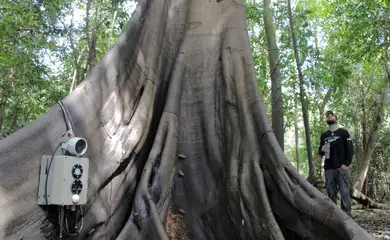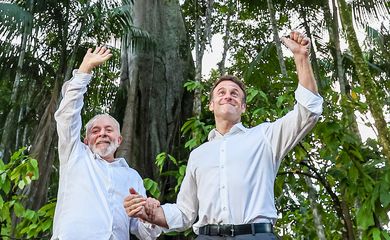Brazil has new biodiversity conservation targets for 2030

The National Biodiversity Commission (Conabio) has established national biodiversity targets for the period 2025 to 2030 and has recommended that the Brazilian government adopt the measures that will form part of the National Biodiversity Strategies and Action Plans (NBSAP).

The document is part of the country's obligations as a signatory of the Kunming-Montreal Global Biodiversity Framework (GBF), established in December 2022.
A total of 23 goals have been set to promote the regeneration of Brazil's biomes. The first goal focuses on reducing biodiversity loss and is divided into two key components. One addresses spatial planning and participatory management of the entire national territory, considering climate change and land-use changes. The other sets a target of achieving zero deforestation in the country.
The remaining targets, aligned with the GBF, focus on ecosystem restoration, conservation, and management; promoting and expanding sustainable trade; preventing species extinctions and genetic diversity loss; and reducing invasive alien species and pollution.
COP16
National policy also includes goals related to access to and the sharing of benefits from the use of genetic resources and digital genetic sequence information. This issue was a major point of contention at the 16th Conference of the Parties to the United Nations Convention on Biological Diversity (COP16) held in October 2024 in Cali, Colombia.
The lack of consensus in the negotiations prompted a second round of discussions, set to begin next week in Rome, Italy. The 196 GBF signatory countries are expected to advance in presenting their action plans.
Other goals presented by Conabio reflect Brazil's stance on key obstacles in the negotiations, including the effectiveness of the Global Biodiversity Framework Fund (GBFF). Managed by the Global Environment Facility (GEF), the fund serves as a financing mechanism to help less developed countries strengthen their biodiversity protection policies.
Funding
One of Brazil's goals is to boost funding for the implementation of the NBSAP and its state versions, aiming to increase biodiversity-related resources substantially and in proportion to the national GDP. This effort contributes to the global target of at least $200 billion per year by 2030. The measure also explores ways to complement public funding, including incentives for private sector engagement in strengthening ecosystem protection and supporting traditional communities.
Other key themes in Brazil's goals, expected to gain traction in the Rome discussions, include eliminating subsidies harmful to biodiversity and promoting training, technical-scientific cooperation, and technology transfer for the conservation, management, and sustainable use of socio-biodiversity.








